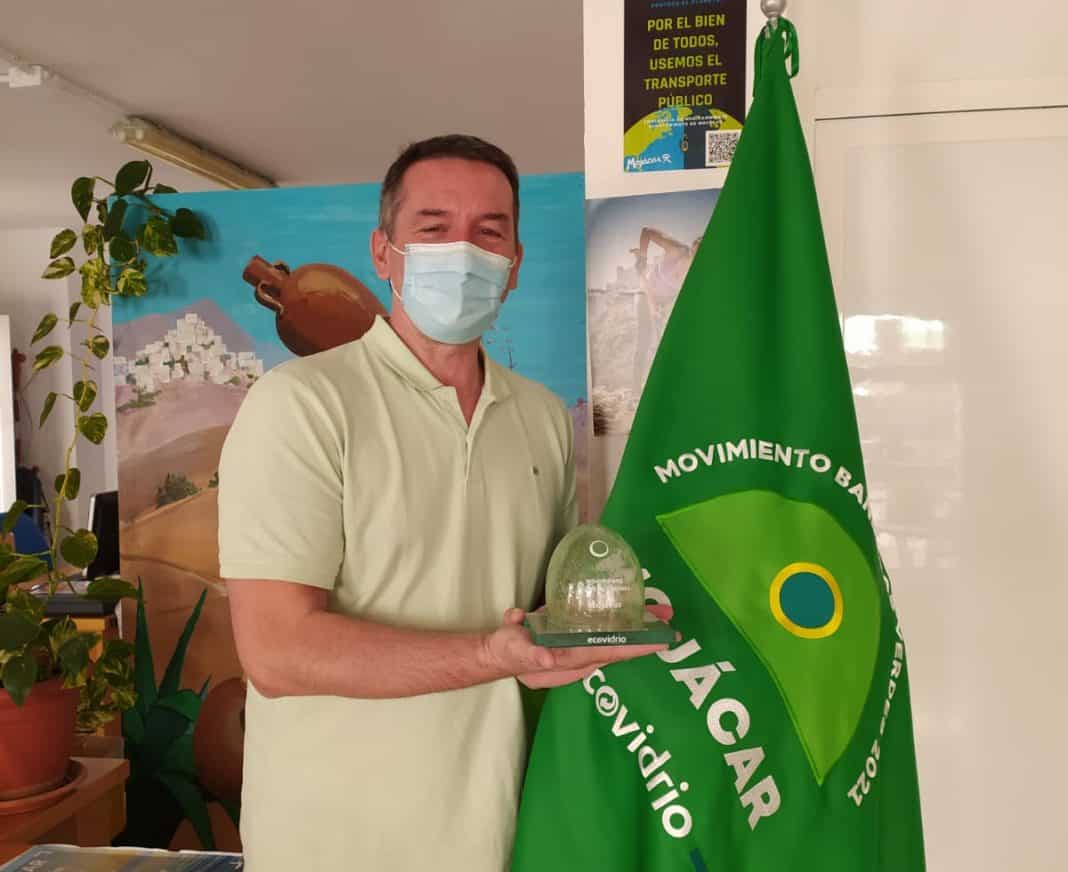The award recognises tho localities which have increased their selective collection of glass containers during the summer and which surpass the challenge established by Ecovidrio.
This recognition is part of the Green Flags campaign, an initiative which recognises the effort of the local hospitality sector on recycling glass containers and the activism of the municipalities on sustainability.
Mojácar Council today received the “Green Igloo” of Ecovidrio, the non-profit entity in charge of the management of glass packaging waste recycling in Spain. This award, which is in addition to the recently obtained Green Flag, recognises the municipalities participating in the Green Flags movement, which have increased the selective recycling of glass containers during the summer months and which have surpassed the challenge established by the entity.
Mojácar Council, in collaboration with the Almanzora-Levante-Vélez Consortium, managed to selectively collect a total of 69 tonnes of glass containers, 31 per cent more than in 2020. These results would not have been possible without the collaboration of 41 hospitality trade establishments, to which 17 bins adapted to their needs were given, a sector which generates 52 per cent of single-use glass containers.
With the aim of increasing the collection volumes in a critical period for consumption, Ecovidrio has developed an intensive campaign to support hospitality sector professionals in the locality through the fitting out of containers adapted to the hospitality industry and bins which facilitate the transport of glass packaging waste.
Mojácar Council has received the Ecovidrio award, which was presented to Emmanuel Agüero as Delegate Councillor for the Environment and Tourism.
The Green Flags Movement is one of Ecovidrio’s most recognisable initiatives to support the hospitality sector and move towards a more sustainable and resources-friendly offer. This summer the entity made more than 15,000 information and awareness-raising visits to hospitality sector establishments in the participating localities.
Finding out about their recycling habits, monitoring the surrounding areas’ filling volumes, installing more than 500 containers at the disposal of the hospitality sector, as well as facilitating the transport of glass packaging waste with adapted bins are some of the operational actions on the ground.





